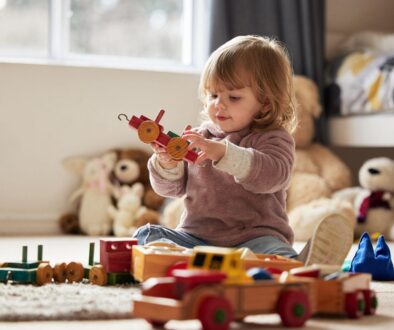The Importance of Gratitude

Research shows that there is a strong connection between cultivating gratitude and increased overall happiness. Gratitude goes much deeper than just saying please and thank-you, it’s a mindset, one that you can develop and cultivate. When we are grateful, we are often healthier, more positive, and more resilient. Showing gratitude is also an important social skill because it is associated with the development of empathy. These benefits are desirable to have, not only for ourselves, but also for our children.
Raising children who appreciate what they have and what others do for them is an important goal for most parents. Teaching kids to be grateful can be simple. Modeling the different character traits we want to see in our children, is an easy way to ensure that they will eventually pick them up. The old saying is true that some things are better caught than taught. This is especially true for gratefulness.
Although younger children may not be developmentally able to understand or express gratitude, there are many ways parents can start nurturing its development.
- Encourage Generosity. Look for opportunities to talk to your child about helping others who don’t have as much as they do. For example, donate canned food items to a local food pantry or give outgrown clothing/coats to a children’s program or shelter.
- Be Grateful. Show your child that you are thankful for things he or she does. “Thank you for listening when I told you to put your toy away.” “Thank you for giving me a big hug; it made me feel happy.”
- Show Gratefulness Towards Others. Find small projects you can do with your child to thank others. For example, take cookies to the firefighters or involve your child in the process of writing and mailing a thank you note.
- Be Patient. Like many other desired behaviors, developing gratitude is a process. It will take your child a great deal of practice and will require encouragement and positive reinforcement from you.
You can build a habit of gratitude just by paying attention each day to things you’re glad to have in your life. Slow down and notice what’s around you. Begin pointing out the little things to be thankful for and talking about them to your child.
“It’s not happiness that brings us gratitude. It’s gratitude that brings us happiness.” – Anonymous





